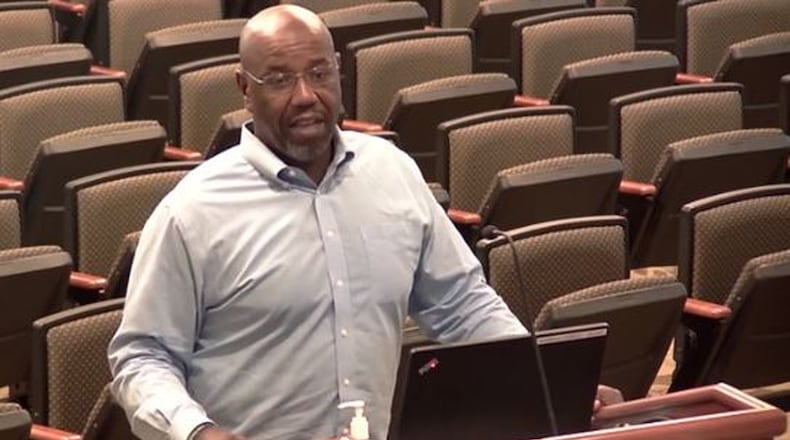Springboro’s Quaker founders supported the local stops on the Underground Railroad that rescued slaves to freedom in the 1800s.
The Springboro Area Historical Society has documented 27 “depots” in and around the city, and remnants of hiding places and tunnels still exist in private houses and businesses there.
RELATED: Notable sites on Ohio’s Underground Railroad
Salmon-Gilmore also wants Springboro City Council to pass a resolution proclaiming its support for racial diversity and opposition to racial inequality.
Mayor John Agenbroad is part of a group meeting to discuss Salmon-Gilmore’s ideas.
On Thursday, Agenbroad and Salmon-Gilmore were meeting others, including with Don Ross, a local expert on Springboro’s part in the functioning of the Underground Railroad network
“People of color like to come to Springboro and make their home there,” Agenbroad said Tuesday from his office in Lebanon.
Salmon-Gilmore suggested an annual event to embrace racial equality and recognize this local legacy.
The premier celebration would be held held on June 19, 2021, along with Juneteenth events across the U.S.
MORE: 5 Underground Railroad sites near Dayton
“This is all in its infancy,” he said Monday. “I’m waiting to see how things progress.”
Agenbroad said the 2021 date is already set aside for a local arts and crafts weekend.
“They don’t have any room to maneuver on that date. Maybe there’s a way to combine,” he said.
Ross, a long-time resident and local leader, offers a 30-minute tour of Springboro's Underground Railroad stops on YouTube for the Springboro Area Historical Society.
In the video and an earlier Dayton Daily News article, Ross recounted how a group of angry Quakers surrounded a Virginia man traveling through the woods west of town with a group of slaves in 1840. The Quakers restrained the man while his slaves ran.
The man filed charges and marshals arrested 17 Springboro residents, including Fred Wilson, a free black man not involved in the incident. The white defendants got off with fines but Wilson was taken for trial to Franklin, a pro-slavery town at the time, and Wilson’s Quaker friends believed he would be lynched there.
As Wilson was being led at night from the squire’s office in Franklin, a jailer held a lantern near his face to point him out to a mob that gathered outside. But Wilson’s friends surrounded him, starting enough commotion for him to crouch down and escape to a horse the friends placed in the jimson weed out back, according to Ross.
MORE: Read More About Springboro
Also, the cellar of the Null Cabin on the city’s Heatherwoode Golf Club includes a square room roughly matching the contours of the house above. At the top of the wall at the northeast corner is an entrance to a crawl space where slaves were hidden.
Salmon-Gilmore said he hoped to reassure minority residents, including those with Black, Mexican, Indian or Asian heritages, that this attitude persists today in the Springboro area.
“We want them to feel confident and comfortable in their home,” he said.
MORE: Is the George Floyd killing a pivotal national moment?
“Paralyzed at my home for a week” by Floyd’s death, Salmon-Gilmore said he emerged intent on helping to make change at home and across the nation.
While recognizing local support, Salmon-Gilmore acknowledged racist attitudes also exist in the community.
“You don’t know who’s a racist until they show their hands,” he said, pointing to people, some of whom use false identities to express themselves on social networks.
Agenbroad and Salmon-Gilmore marveled that, according to Carol Hughes, President/CEO of the Springboro Chamber of Commerce, the city was 40 percent Black 120 years ago.
"That's our heritage. We don't know it. We need to let that be known," Salmon-Gilmore said during the July 2 council meeting.
About the Author

